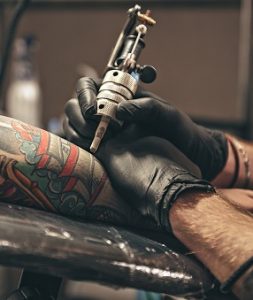Measure helps improve job opportunities for those with criminal histories
DOVER, Del. – Governor John Carney signed legislation Thursday that would help improve employment and training opportunities for Delawareans with criminal histories seeking cosmetology and barbering licensure.
Sponsored by Rep. J.J. Johnson, House Bill 97 removes licensing roadblocks so a criminal history will not stand in the way of an individual pursuing and applying for an aesthetics license to practice cosmetology, barbering, electrology or nail technology.
“Delawareans who have served their time deserve a second chance, an opportunity to contribute, and reach their full potential,” said Governor Carney. “This legislation will help those with criminal histories improve their lives, while strengthening our communities. Thank you to Representative Johnson and Senator Henry for their leadership on this issue.”
Championed by Rep. Johnson, the legislation gives the Board of Cosmetology and Barbering discretion to grant waivers for certain felony convictions when assessing licensure applicants if up to three years have elapsed since their sentence. Previously, the waiting period was five years.
“After an individual has paid his or her debt to society, all they want is to be able to begin to rebuild their lives. Stable employment and training opportunities are critical to that rehabilitation,” said Representative Johnson, who chairs the House Corrections Committee. “This legislation removes barriers so that individuals will not be defined by their past and will be able to pursue licensing opportunities to put them on a sustainable path forward.”
Under the bill, the board is also precluded from taking into account an applicant’s criminal conviction if more than 10 years have passed since the date of the sentence and there have been no other convictions during that time.
“We spend a lot of time in Dover making sure that the state government isn’t placing overly burdensome or harmful regulations on our economy or our neighborhoods. Shouldn’t we do the same to help former inmates contribute to both?” said Senate Majority Leader Margaret Rose Henry, D-Wilmington. “Ex-offenders already face a steep climb upon release, and failure often means returning to prison, so I couldn’t be more proud to join my friend Rep. Johnson in opening up an avenue to self-sustainability and success for these Delawareans.”
“Professional licensure is often a gateway to a new life for Delawareans looking to launch new careers, earn more for their families and contribute to their communities,” said David Mangler, director of the Division of Professional Regulation. “We are proud to be a part of Rep. Johnson’s efforts to break down barriers to licensure and broaden opportunities for people across the state.”
For questions about licensing, contact the Division of Professional Regulation at customerservice.dpr@delaware.gov or 302-744-4500. Visit the division’s website www.dpr.delaware.gov for more information.
###
 DOVER — On Tuesday Nov. 28, 2017, the Delaware Division of Public Health (DPH) ordered closure of an unpermitted body art establishment operating out of a barbershop in Selbyville. In addition to operating without a permit and being entirely unregulated, DPH staff were unable to confirm that proper sanitary precautions were used. DPH Health Systems Protection staff closed not only the body art establishment, in which tattooing and body piercing activities were taking place without a permit, but also the B & B Barber Shop, located at 5 West Church St., Unit 203, for grossly unsanitary conditions.
DOVER — On Tuesday Nov. 28, 2017, the Delaware Division of Public Health (DPH) ordered closure of an unpermitted body art establishment operating out of a barbershop in Selbyville. In addition to operating without a permit and being entirely unregulated, DPH staff were unable to confirm that proper sanitary precautions were used. DPH Health Systems Protection staff closed not only the body art establishment, in which tattooing and body piercing activities were taking place without a permit, but also the B & B Barber Shop, located at 5 West Church St., Unit 203, for grossly unsanitary conditions.